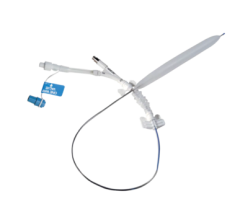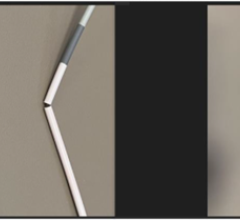July 14, 2009 – Cardiovascular Systems Inc. (CSI) said yesterday the first patient has been enrolled in its COMPLIANCE 360° clinical trial, a prospective, randomized study to generate additional data on patient outcomes achieved in treating lesions above the knee with CSI’s Diamondback 360° Peripheral Arterial System, a minimally invasive catheter for treating peripheral arterial disease (PAD).
COMPLIANCE 360° will compare the benefits of first modifying calcified plaque with the Diamondback 360° system followed by low-pressure balloon inflation if needed, as compared to the use of high-pressure balloon angioplasty alone in calcified lesions above the knee. Treatment with only high-pressure balloon angioplasty often damages large diseased vessels above the knee. Initial treatment with the Diamondback 360° could reduce the level of balloon pressure required to finish opening the vessel. The COMPLIANCE 360° study calls for enrolling 50 patients at five U.S. medical centers. Patients will be followed for 12 months, and an independent angiography core lab will verify results.
CSI received FDA 510(k) marketing clearance for the Diamondback 360° as a PAD therapy in August 2007 on the basis of data from the OASIS study, a prospective study which enrolled 124 patients at 20 medical centers. Since then, nearly 500 hospitals have adopted the Diamondback 360° system, the company said.
“The Diamondback 360° represents a viable treatment option for patients who previously have had limited options,” said Ravish Sachar, M.D., an interventional cardiologist at WakeMed Health and Hospital in Raleigh, N.C., who enrolled the first patient in the COMPLIANCE 360° trial. “Treating this disease can be very challenging due to the frequency of non-compliant, calcified plaque resulting from diabetes, smoking or renal failure. It has long been understood that high-pressure balloon angioplasty alone in these types of lesions can lead to vessel damage, and this study will help provide insight into the benefits of plaque modification prior to angioplasty.”
For more information: www.csi360.com


 June 13, 2024
June 13, 2024 









